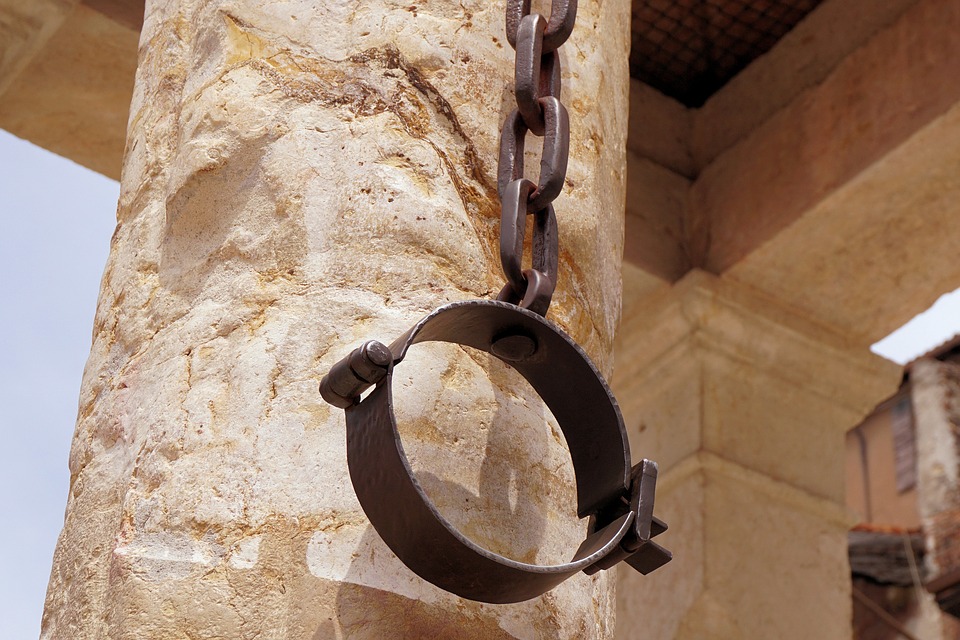The death penalty, commonly known as capital punishment, is the legal imposition of the sentence of killing one by any method accepted after being convicted by a court of law. Its historical background can be traced back to the biblical period when this punishment was used on criminal, political, and religious dissidents.[1] King Hammurabi of Babylon established the death penalty laws around the eighteenth century. They were codified for twenty-five crimes, including adultery and helping an enslaved person escape.[2] Death sentences were carried out through crucifixion, drowning, beating to death, and burning alive as well as implement; however, hanging became common in the twentieth century.[3] The death penalty was not only restricted to religious communities or countries; it was also executed in native communities as a collective punishment.[4] This form of punishment was only brought to Southern Africa by the colonizing powers, where it was used for many offenses. For instance, South Africa (SA) was imposed for heinous crimes such as rape, treason, and murder.[5] The Scourage of the Death Penalty has been increased recently. Furthermore, despite the numerous efforts towards its abolition, countries remain to retain the death penalty, mainly to deter crime and safeguard the community’s safety. Moreover, justice has become a relative term, and people term incidences contrary to their self-will and desire as injustice.[6] Therefore, the thirst for vengeance is so evident that states find it difficult to ignore.[7]
Read more Indigenous status of ethnic minorities in Bangladesh: A constitutional review.
This horrific procedure does not severely affect the accused, but it causes tension between states, especially in cases where one country is still a retentionist. A typical example is the Mariette Bosch case, one of the most famous cases in Botswana that caused a lot of commotion around the World. In an interview, Mariette explains how she had nightmares while waiting for her execution, which affected her mentally. This, on its own, is a clear indicator of the need to abolish the death penalty.
What needs to be understood is that justice should not prevail over another individual’s rights. However, justice is available to protect both the rights of the accused and the victim and give the accused a chance to rehabilitate from their wrongdoings.
Read more Gender-based Racism: a social evil in the context of Asia
Nevertheless, the end of the Second World War brought about a broader understanding of the sanctity of life, as the death penalty had become a human rights issue.[8] Due to the vast understanding of human rights, capital punishment has been considered a violation of the most important fundamental human rights; the right to life and human dignity. Therefore, with such manifestation, it is not surprising that different academic disciplines have risen to oppose capital punishment and have also gone to the extent of referring to it as a barbaric punishment that should not be used in this modern century but instead should be replaced with other alternatives that will give the accused a chance to rehabilitate.
writer
Lesego Gaetwesepe
Studied at Gaborone University College of Law, Botswana
References:
[1] Capital punishment https://en.wikipedia.org/ accessed on ( 2015 October 26)
[2]https://www.deathpenalty.info.org/part1history-deathpenalty accessed (2015, October 29)
[3]K.Kgaodi,’ Effectiveness of the death penalty on the deterrence of the crime murder: A Namibian socio-legal perspective(2011 October 30) http://digital.unam.na/handle/11070.1/831_kgaodi_effectiveness_2011.pdf accessed on (2015, October 10)
[4] ibid fn 1
[5] Rocks’ Extradition, Human rights and death penalty; when nation must refuse to extradite a person charged with a capital crime http://scholarly.commons.law.cwsl.edu/cgi accessed on (2015, October 10)
[6]O.B.Iveren, ‘Justification for and the abolition of capital punishment under human rights law, Nigeria(April 2011) https://www.unilorin.edu.ng>law (2015 September 30)
[7] Ibid.
[8]L. Chen’ Towards the abolition of the death penalty in Africa: A human rights perspective http://www.pulp.up.ac.za/pdf/2007 02 /2007 02.pdf (2015 September 21)

Great selection of modern and classic books waiting to be discovered. All free and available in most ereader formats. download free books
whoah this blog is wonderful i really like reading your articles. Keep up the great paintings! You realize, a lot of people are hunting round for this info, you could help them greatly.
https://www.philadelphia.edu.jo/library/directors-message-library